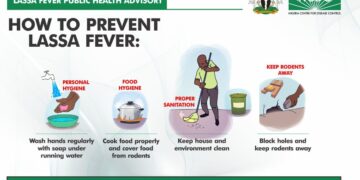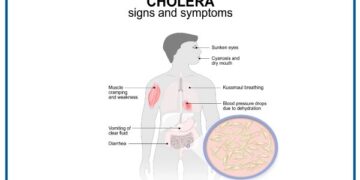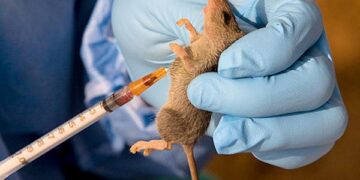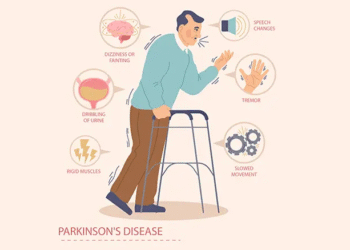Fatima Kamara dedicated her life to caring for others as a frontline health worker. With unwavering compassion and a relentless commitment to her community, Fatima worked tirelessly at the local clinic, often putting in long hours to ensure her patients received the care they needed. One afternoon, a young man named Ibrahim was rushed into the clinic with a high fever and severe body aches. Suspecting malaria, Fatima immediately sprang into action, administering antimalarial medication and providing supportive care. Despite her best efforts, Ibrahim’s condition deteriorated rapidly, and he began experiencing bleeding from his gums and nose—a telltale sign of a more sinister illness like Lassa Fever.
Concerned but undeterred, Fatima and her colleagues quickly isolated Ibrahim and implemented strict infection control measures. However, as days passed, Fatima began to feel unwell herself, experiencing headaches, muscle pain, and fever. Fear crept into her heart as she realized she might have contracted Lassa fever—a deadly viral hemorrhagic fever endemic to West Africa.
Tests confirmed Fatima’s worst fears, and she was immediately transferred to the isolation ward for treatment. As she lay in her hospital bed, battling the debilitating symptoms of Lassa fever, Fatima couldn’t help but reflect on the importance of vigilance among health workers.
Lassa fever, caused by the Lassa virus, is a severe and often fatal illness transmitted to humans through contact with infected rodents or their urine and droppings. Health workers like Fatima are at high risk of contracting the disease due to their close proximity to patients and exposure to bodily fluids.
Fatima’s experience underscored the critical need for health workers to remain vigilant and adhere to strict infection control protocols at all times. From proper hand hygiene and the use of personal protective equipment to prompt identification and isolation of suspected cases, every precaution must be taken to prevent the spread of Lassa fever in healthcare settings.
Despite the physical and emotional toll of her illness, Fatima emerged from her battle with Lassa fever stronger and more determined than ever. As she returned to her work at the clinic, she vowed to educate her fellow health workers about the risks of Lassa fever and the importance of staying vigilant at all times.
Through her resilience and dedication, Fatima became a beacon of hope and inspiration for her community—a reminder that even in the face of adversity, the tireless efforts of healthcare workers like her can make a difference in the fight against infectious diseases.
The vigilance of health workers for Lassa fever cannot be overstated. Cases like Fatima’s, highlight the risks health workers face while serving communities. Strict adherence to safety protocols is paramount in preventing transmission.
A health worker’s dedication to vigilance is crucial in protecting both themselves and the public from not just Lassa fever but other diseases.
The Nigeria Centre for Disease Control and Prevention (NCDC) issues a stern warning to health workers: adhere strictly to standard practice when dealing with suspected cases of Lassa fever.
With recent incidents in some states in the country, vigilance is paramount. Following established safety protocols not only safeguards health workers but also prevents the spread of this highly contagious disease. The NCDC urges all healthcare professionals to prioritize their safety and that of their patients by maintaining the highest standards of infection control at all times.


















![Antimicrobial Resistance [AMR] in Hausa](https://healthtoday.com.ng/wp-content/uploads/2024/02/antimicrobial-resistance-AMR--360x180.jpeg)



























